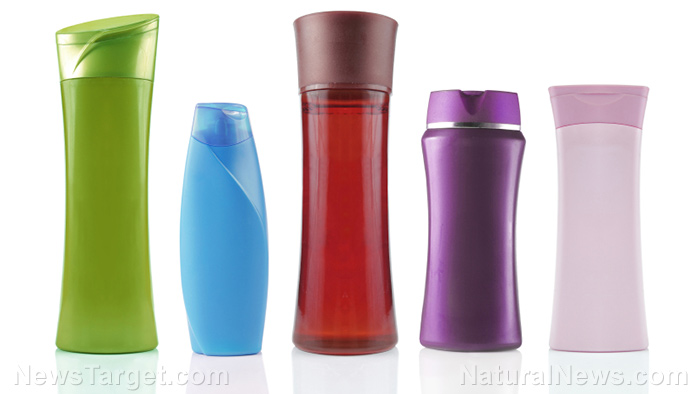 Parler
Parler Gab
Gab
- The U.S. may drop its longstanding alcohol limits (1 drink for women, 2 for men) in favor of vague "moderation" advice, despite known cancer risks.
- Alcohol giants Diageo and Anheuser-Busch spent millions lobbying during the guideline review, raising concerns about industry influence.
- Public health experts warn there’s no safe alcohol level, citing links to cancer and 100,000 annual U.S. cases, yet new rules may downplay these dangers.
- The change comes as alcohol sales decline, fueling suspicions it’s a lifeline for Big Alcohol rather than science-based policy.
- Critics accuse HHS of favoring corporate interests over public health, weakening warnings despite clear evidence of harm.
A gift to Big Alcohol amid declining sales
The timing couldn’t be more suspicious. The alcohol industry is facing declining demand, with Goldman Sachs analysts noting deteriorating sales trends, including a "rough start" to the summer drinking season. By scrapping specific daily limits, the Trump administration appears to be handing Big Alcohol a lifeline, despite HHS Secretary Robert F. Kennedy Jr.’s supposed anti-corporate stance. Currently, the guidelines define moderate drinking as no more than one daily drink for women and two for men in a standard that has been in place since 1990. But under the new proposal, that clarity vanishes. One source told Reuters the updated guidance may be reduced to just a sentence or two, buried in an appendix rather than emphasized as a key health recommendation.Ignoring the science: No safe level of alcohol consumption
Public health advocates are sounding the alarm, warning that this shift ignores mounting evidence that even low-level alcohol consumption carries serious risks. Dr. Faiz Bhora, a professor of surgery at Hackensack Meridian School of Medicine, stated: "We now know that there is no safe level for alcohol consumption, and that alcohol is a known carcinogen." The U.S. Surgeon General’s Advisory has previously warned that alcohol is responsible for 100,000 cancer cases and 20,000 deaths annually — more than alcohol-related traffic fatalities. Studies confirm links between drinking and seven types of cancer, including breast cancer. Yet the new guidelines may sideline these dangers in favor of industry-friendly ambiguity. Eva Greenthal, a senior policy scientist at the Center for Science in the Public Interest, slammed the expected change as "so vague as to be unhelpful." She warned that without clear limits, consumers will miss critical warnings about alcohol’s cancer risks. The alcohol industry has fought aggressively against tighter restrictions. Lobbying disclosures reveal that Diageo and Anheuser-Busch poured millions into influencing lawmakers during the guideline review process, and their efforts appear to have paid off. Science Over Bias, an industry-backed group, claims the guidelines should be based on "sound scientific evidence" yet conveniently ignores studies showing no safe threshold for alcohol. Meanwhile, shares of alcohol companies rose sharply following reports of the potential policy shift, proving just how much Big Alcohol stands to gain.Is HHS still captured by corporate interests?
Despite RFK Jr.’s appointment as HHS Secretary in a move many hoped would curb corporate influence, the agency’s actions suggest business as usual. Scrapping alcohol limits aligns with industry demands, not public health. Former Surgeon General Vivek Murthy has called for warning labels on alcoholic beverages, citing their cancer risks. But with HHS now poised to weaken its stance, it’s clear that corporate lobbying still trumps science in Washington. If finalized, these changes will send a dangerous message that profits matter more than people. By abandoning clear alcohol limits, the U.S. government is effectively greenlighting a substance linked to cancer, liver disease and premature death — all while letting industry lobbyists dictate policy. Sources for this article include: ZeroHedge.com Reuters.com CNBC.com Newsweek.comUnveiling the truth: Gary Null’s “Complete Guide to Health and Nutrition”
By Belle Carter // Share
Malware data breach exposes 16 BILLION login credentials
By Ava Grace // Share
The end of Israeli exceptionalism
By News Editors // Share
EU collaborates with foreign governments on digital ID
By Laura Harris // Share
Phytic acid in natural beauty products: A silent threat in your skincare routine
By Zoey Sky // Share
Governments continue to obscure COVID-19 vaccine data amid rising concerns over excess deaths
By patricklewis // Share
Tech giant Microsoft backs EXTINCTION with its support of carbon capture programs
By ramontomeydw // Share
Germany to resume arms exports to Israel despite repeated ceasefire violations
By isabelle // Share










